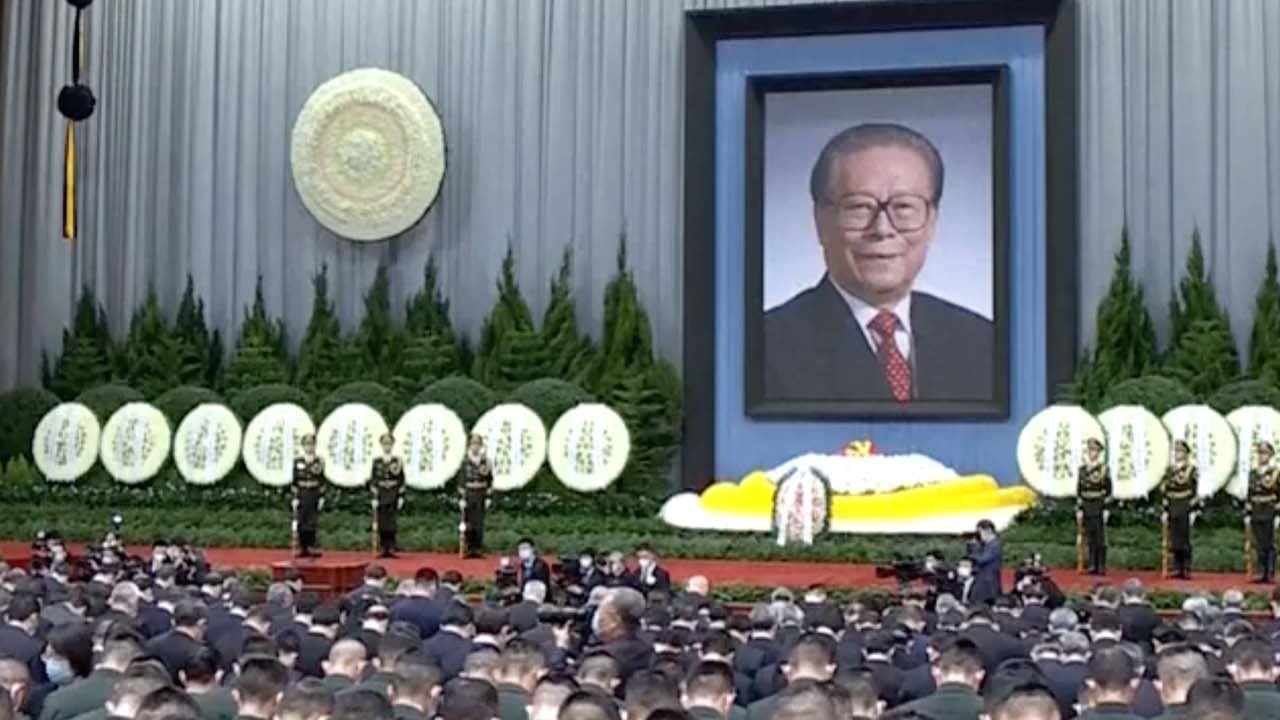
New journey by Xi to build on foundations laid by reformer Jiang
- As China moves forward, the legacy of Jiang Zemin will prove invaluable for President Xi Jinping, who faces challenges equal to those overcome by his predecessor
A measure of a departed leader is how relevant he remains in terms of the present and the future. President Xi Jinping answered that question about predecessor Jiang Zemin in the affirmative in his address at Jiang’s memorial service in the Great Hall of the People yesterday.
Xi’s theme was that this is a time to move forward by building on the opening up and reform that defined his legacy. Jiang became leader of the Communist Party in 1989 with China at the crossroads and facing international isolation following the June 4 crackdown on democracy protesters, and the danger of turning inward and giving up on reform.
Under the initial guidance of then paramount leader Deng Xiaoping, the architect of reform, Jiang pushed on with opening up that generated soaring economic growth through trade with the outside world, thanks to demand for Chinese-made goods.
He retired in 2002 with China having joined the World Trade Organization, won the right to stage the summer Olympics and resumed sovereignty over Hong Kong and Macau, among many other signposts of international respect and acceptance.
Xi gave Jiang credit for modernising reform that widened party membership to include entrepreneurs. Having paid tribute to his major contributions, Xi made it clear the country has now embarked on a new journey in a new era to transform a moderately prosperous country into a powerful nation.
It is a mission for which Jiang helped lay the foundations. It amounts to inheriting and harnessing the spirit of the past to venture into the future.
Why former leader Hu Jintao did not attend Jiang Zemin’s funeral
Hong Kong had not witnessed such a memorial for a high-profile leader since Deng’s funeral in 1997, before the resumption of sovereignty. Historically, Deng devised the “one country, two systems” concept and Jiang was the first leader to implement it. Xi has guaranteed it as a core pillar of development – another example of moving forward with a legacy of the past.
Xi reflected on Jiang’s empathy and his support for the current anti-corruption campaign and modernisation of the military, thorny issues that have to be grasped if China is to realise its ambition to be a truly powerful nation.
Moreover, like Xi, Jiang absorbed the lesson of the collapse of the former Soviet Union and brooked no compromise about the leadership role of the party.
While Xi talked about Jiang taking up the top position at a difficult time, history will record that Xi, too, faces a challenge to achieve his goal of national rejuvenation by overcoming United States’ containment policies towards China.


